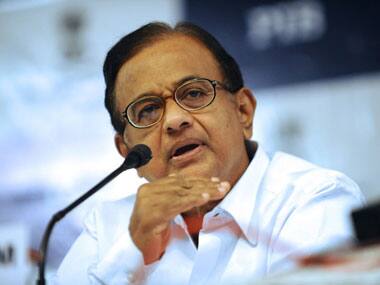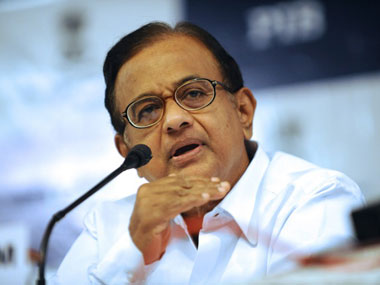The more one looks at the fine print of Budget 2013, the more one is struck by the slickness of P Chidambaram’s smoke-and-mirrors arithmetic, and the extent to which the Budget outcomes hinge on assumptions that, given the UPA government’s record of recent years, are eminently unattainable.
At his post-Budget press conference, Chidambaram was pointedly asked about the credibility of the numbers that underlie his projection that fiscal deficit would be contained at 5.2 percent of GDP this year and 4.8 percent in the next year. He defended his case by citing the possibility that the fuel subsidy bill will be lower, since it hadn’t factored in the effect of the diesel price deregulation announced recently, and the impact of the cap of nine subsidised LPG cylinders. But he seemed oblivious of the fact that for even such a question to be asked of the Finance Minister to his face points to an utter lack of faith in the sanctity of the Budget numbers.
In any case, for the fuel subsidy to be wiped out in its entirety, as Chidambaram reasons it will, requires the UPA government to persevere with the diesel price hikes and LPG subsidy rationalisation even at the risk of facing political backlash in an election year. Going by the record of the UPA government of recent years, that’s a big ask.
[caption id=“attachment_643976” align=“alignright” width=“380”]  P Chidambaram had his nose to the grindstone, and so missed seeing the stars. AFP[/caption]
Yet, even Chidambaram’s response gave away the element of uncertainty that is embedded in his projections on subsidies, which go to the core of the question about the credibility of the budget assumptions. He indicated that the provision of Rs 10,000 crore in the Budget for the Food Security Act was pegged to his Ministry’s calculations that food subsidy would be contained at Rs 80,000 crore. “If the Food Security Act requires more money, we will provide more funds,” he added. In any case, that question could be addressed only after the Food Security Act was passed. “I don’t have a Bill before me, so I can’t say what it will cost.”
Other assumptions and projections in the Budget are even more glaring. Chidambaram has pencilled in tax revenue growth of 19 percent on a nominal GDP growth of just 10.8 percent. As economist Surjit S Bhalla observes ( here), such a swelling is most unlikely, given the slow growth of the Indian economy, which will likely to be made slower still by the tax hikes announced in the Budget.
“I am afraid,” writes Bhalla, that “the talk will soon turn to the credibility of the growth numbers projected in the budget.” In the first three quarters, he points out, the economy grew at an average of 5 percent. GDP growth for the whole year is likely to be less than 4.8 percent - the fifth lowest in the past 20 years. “If you believe the UPA 2’s growth and tax projections embedded in Chidambaram’s budget for 2-13-14, I have some used cars, a bridge, and snake oil for you to buy.”
That scepticism is, in fact, more widely shared, even though sovereign rating agencies have for now indicated that they will not deliver for now on their threat to lower India’s sovereign rating to junk status.
“If the government enacts the food security bill,” observes Standard & Poor’s rating analyst Takahira Ogawa, “the fiscal burden from food subsidy can increase. As a result, the total cost of subsidies may exceed the government’s budgeted 2 percent of GDP in fiscal 2013-2014, compared with 2.6 percent in the current year.”
Chidambaram’s Budget arithmetic may also be “vulnerable to economic conditions” next year, and any judgement on the government’s commitment to medium-term fiscal consolidation must await that outcome, adds Ogawa.
But more than anything else, Chidambaram’s obsession with averting a soveriegn rating downgrade has meant that he has missed out on the chance to use the crisis that confronts the economy today - and it is a crisis - to advance structural reforms that would have helped fix the government’s vulnerable fiscal position.
Instead, as former Disinvestment Minister Arun Shourie noted in a television talk show on Thursday, Chidambaram’s Budget rapidly descended into a laundry list of micro-minutiae: “Two banians, three underwear and four handkerchiefs…”
If you have your nose to the grindstone, it’s hard for you to see the stars. In Budget 2013, Chidambaram had a chance to burnish his credentials as a reformist-minded Finance Minister. He has instead opted uncharacteristically to tiptoe around the edges, and rely on questionable arithmetic to claim that he is advancing fiscal consolidation.
Not only has he wasted the crisis, Chidambaram has opened himself to the risk that the harsh reality of India’s economic plight will expose his Budget numbers as a smoke-and-mirrors job that doesn’t inspire faith.


)
)
)
)
)
)
)
)
)



